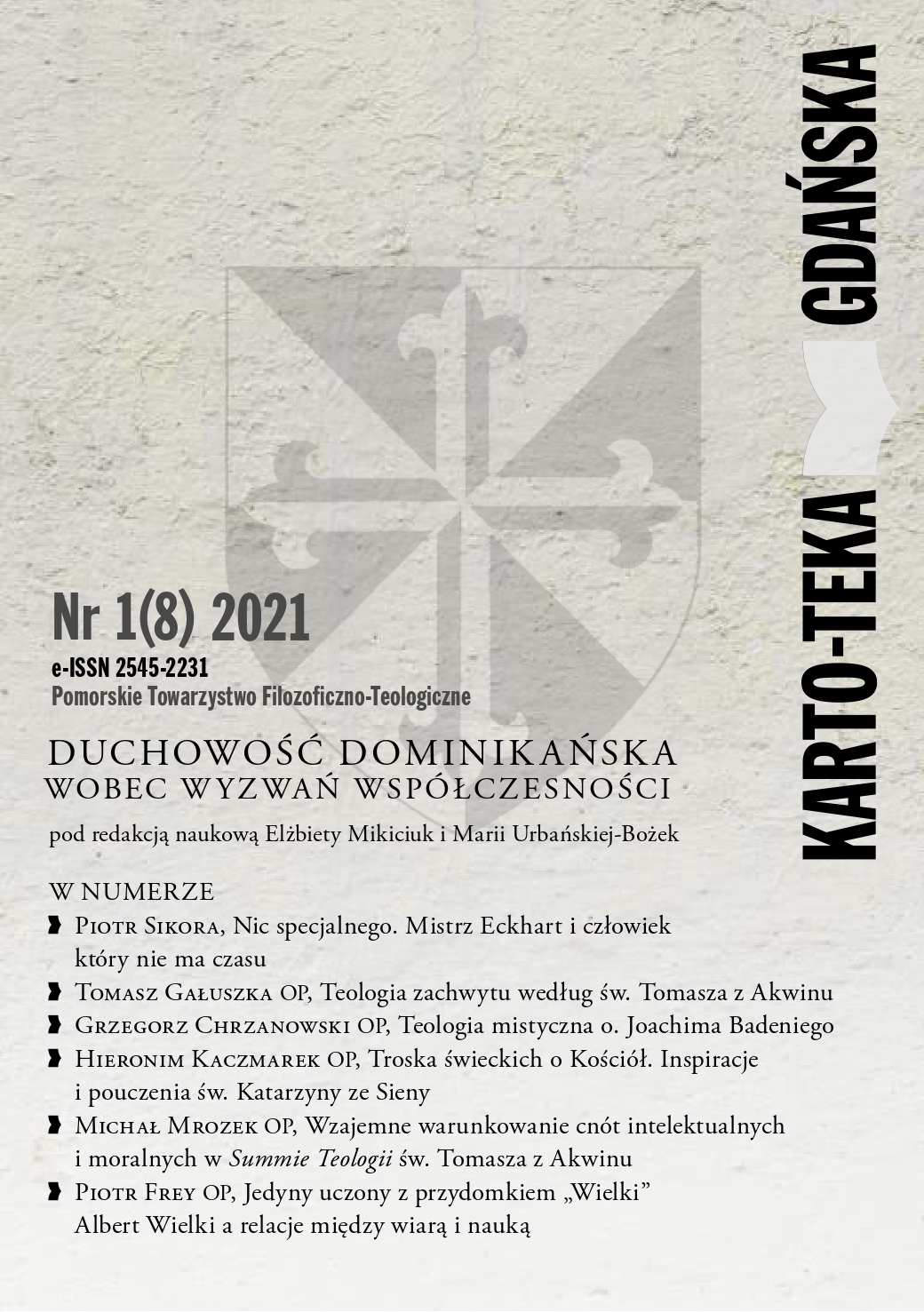The Power and Weakness of Thinking part 2
Keywords:
Rudolf Steiner, philosophy, freedom, anthroposophy, thinkingAbstract
This text continues Jerzy Prokopiuk’s commentary on the first part of Rudolf Steiner’s work The Philosophy of Freedom, titled Knowledge of freedom. Steiner emphasizes the role of critical thinking, which shows the relation between subject and object. The ability to observe one’s own thinking process is also a possibility to overcome Immanuel Kant’s epistemological boundaries. This epistemology assumes dualism of cognizable phenomena and uncognizable noumena. This approach is called critical idealism, which is only an ostensible alternative for naive realism. Steiner also criticizes naive realism for unjustified belief about world completeness, cognizable by observation. According to him, if observation has limits (because it depends on the observer position), thinking is identified as being capable of reuniting human with the universe. The consequences of it are not only epistemological, but also ethical, which is a subject of the second part of The Philosophy of Freedom, titled The reality of freedom.
Downloads
References
Berkeley G., Traktat o zasadach poznania ludzkiego, Trzy dialogi między Hylasem i Filonusem, tłum. J. Leszczyński, J. Sosnowska, Państwowe Wydawnictwo Naukowe, Warszawa 1956.
Berkeley G., Traktat o zasadach poznania ludzkiego, tłum. J. Leszczyński, Państwowe Wydawnictwo Naukowe, Warszawa 1956.
Bierdiajew M., Filozofia wolności, tłum. E. Matuszczyk, Wydawnictwo Otrhdruk, Białystok 1995.
Fichte J. G., Powołanie człowieka, tłum. A. Zieleńczyk, Wydawnictwo „Antyk”, Kęty 2002.
Fichte J. G., Sämmtliche Werke, t. 1, Verlag von Veit und Comp, Berlin 1845.
Goethe J.W., Faust, cz. 1, tłum. A. Sandauer, Wydawnictwo Literackie, Kraków 1987.
Lange F. A., Geschichte des Materialismus und Kritik seiner Bedeutung in der Gegenwart, t. 1 i 2, Aufl. Baedeker,Iserlohn 1873 i 1875.
Liebmann O., Zur Analysis der Wirklichkeit. Eine Erörterung der Grundprobleme der Philosophie, Strassburg 1880.
Ruyer R., Nowa gnoza, tłum. M. Goszczyńska, „Literatura na świecie” 1982, nr 3–4 (128–129).
Schopenhauer A, Świat jako wola i przedstawienie, tłum. J. Garewicz, t. 1, Państwowe Wydawnictwo Naukowe, Warszawa 1994.
Spencer H., First principles, Williams and Norgate, London 1862.
Steiner G., Dziesięć (możliwych) przyczyn smutku myśli, tłum. O. i W. Kubińscy, słowo/obraz terytoria, Gdańsk 2007.
Steiner R., Allgemeing Menchenkunde als Grundlage der Pedagogik, Rudolf Steiner-Nachlaftverwaltung, Dornach/Schweiz 1960.
Steiner R., Anthroposophie – ihre Erkenntniswurzlen und Lebenfrüchte. Mit einer Einleitung über den Agnostizismus als Verderber echten Menschentums, Freies Geistesleben, Stuttgart 1962.
Steiner R, Anthroposophie Leitsätze, Philosophisch-Anthroposophischer Verl. am Goetheanum, Dornach 1925.
Steiner R., Anthroposophische Leitsätze. Der Erkenntnisweg der Anthroposophie Das Michael-Mysterium, Erstveröffentlichung in der Wochenschrift „Was in der anthroposophischen Gesellschaft vorgeht”, 1924/25, online:<http://anthroposophie.byu.edu/schriften/026.pdf>; [dostęp: 23.12.2020].
Steiner R., Die Ratsel der Philosophie, Schweiz: Steiner Verlag, Dornach 1974.
Steiner R., Filozofia wolności. Główny zapis nowoczesnego światopoglądu. Wyniki obserwacji w sferze duszy dokonanych metodą przyrodoznawczą, tłum. J. Prokopiuk, Wydawnictwo Spektrum, Warszawa 2000.
Szestow L., Ateny i Jerozolima, tłum. C. Wodziński, Wydawnictwo Znak, Kraków 1993.
Szestow L., Umozrijenije i otkrowienie. Religioznaja filosofija Władimira Sołowiowa i drugije statii, YMCA-Press, Paryż 1964.
Voeglin E., The eclipse of reality, w: Phenomenology and Social Reality. Essays in Memory of Alfred Schutz, red. M. Natanson, Springer, Dordrecht 1970.
Wodziński C., Ateny, Jerozolima, Rzym…, w: L. Szestow, Ateny i Jerozolima, tłum. C. Wodziński, Wydawnictwo Znak, Kraków 1993.

 Academic Scientific Journals
Academic Scientific Journals

